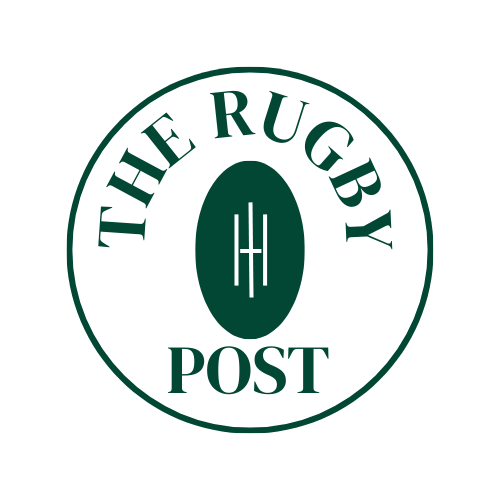The job is done. The score stands. South Africa secured their second consecutive Rugby Championship title, clawing their way past Argentina with a tight 29-27 victory at Twickenham. Rassie Erasmus’s squad made history, becoming the first Springbok team to secure back-to-back titles in the competition.
But the celebration is short. The calendar turns to November, and the long shadow of the 2027 World Cup looms. The discussion now shifts from the trophy cabinet to the squad list: Can the world’s number one team evolve fast enough, or will their reliance on the legends prove too costly?
The Pros: Fight and Power
The Springboks win ugly, and they know how to finish. That resilience-what Erasmus called “massive fight” and the ability to take “things to the gutters”-is the core identity of this team. Captain Siya Kolisi credited this collective mindset and capacity to “dig deep” directly to the culture Erasmus built.
The victory over Argentina owed everything to raw power: scrum dominance. It was described as an awesome flex of the muscles. The tool delivering the damage was hooker Malcolm Marx, who was in particularly destructive form and scored two crucial tries.
Motivation: Built to Last (Or At Least, Built to Win)
The immediate strength of this squad lies in its institutional memory and sheer physicality. They secured the title over the All Blacks on points difference. They are winners, capable of high moments-like a record victory in Wellington-that show a gear beyond their rivals. Even when the performance is far from perfect, they learn while winning.
Moreover, the shifting interpretations of global rugby laws may have handed them an unearned advantage. The directive to outlaw kick-chase blocking (escort runners) means genuine one-on-one competition for the high ball is now allowed. Analysts have already pointed out that this law change could become a game-changer. South Africa is already known as the “masters of this game plan,” and some commentators suggest Erasmus could build an entire strategy around this tweak to win the next World Cup. For the upcoming tour, having freedom for high-ball chasers is a massive tactical asset.
The Cons: Aging armoury and untested depth
Erasmus himself noted the victory over Argentina was “far from perfect” and that the team has five tough matches ahead on the end-of-year tour, confirming there is a lot of work to do. This urgency stems from systemic cracks that must be addressed, particularly regarding personnel and tactical flexibility.
The Springboks are reliant on a cohort of ageing warriors. Nearly half of the 45 players assembled for July’s Tests were over 30, and while they were central to the 2019 and 2023 World Cup triumphs, their effectiveness by 2027 is a critical concern. Key players are showing wear and tear: Willie le Roux’s legs have gone, Bongi Mbonambi has looked tired, and veterans like Cobus Reinach and Faf de Klerk don’t have the zip they once possessed. Makazole Mapimpi and Lukhanyo Am are no longer the menaces of old.
Holding onto the old guard, while understandable given their success, works against younger players gaining vital Test experience. If the old warhorses break down or lose form, and a deputy hasn’t built up the requisite experience to make the grade, Erasmus might realise that he’s missed a trick.
Erasmus must also decide whether to stick rigidly to the forward-heavy Bomb Squad identity or capitalize on the plethora of playmaking backs he now commands. The infamous 5-3 forward/back split bench has been somewhat “defused” in recent selections, suggesting a potential shift towards running the ball from deep. Experimentation is needed now, even if it means sacrificing short-term gains for long-term solutions.
Finally, the question of leadership succession looms large. Siya Kolisi, who remains the team’s beating heart, will be 36 by 2027. While a culture of shared leadership exists, preparing a successor-such as Eben Etzebeth, Salmaan Moerat, or Mbonambi-is necessary action.
The Scoreboard: Turbulence at the top
The Springboks maintain the top spot, a position cemented by their strong campaign. The rankings, however, remain volatile.
While the discussion points to New Zealand climbing to second, the reality, based on the latest available figures (as of September 26th), is different: South Africa held number one with 91.62 points, while Ireland sat at number two with 89.93 points, and New Zealand followed in third with 89.10 points.
The All Blacks’ ranking journey has been a turbulent affair, having recently enjoyed the global number one position for four consecutive weeks during the Rugby Championship after defeating Argentina. However, a staggering defeat at the hands of South Africa sent them spiraling down to third place. The stakes are existential for the All Blacks; a major loss could drop them to an unprecedented sixth position, placing them outside the top seed pot for the 2027 World Cup draw.
For the Springboks, maintaining the number one ranking is crucial for the World Cup draw. But results outside of World Cups are simply a means to that end. Erasmus only won half his matches in 2018 before lifting the trophy a year later. He has the tools to succeed, but the tough November tour will reveal if he has the nerve to rebuild the machine while it’s still running.

Leave a Reply
You must be logged in to post a comment.